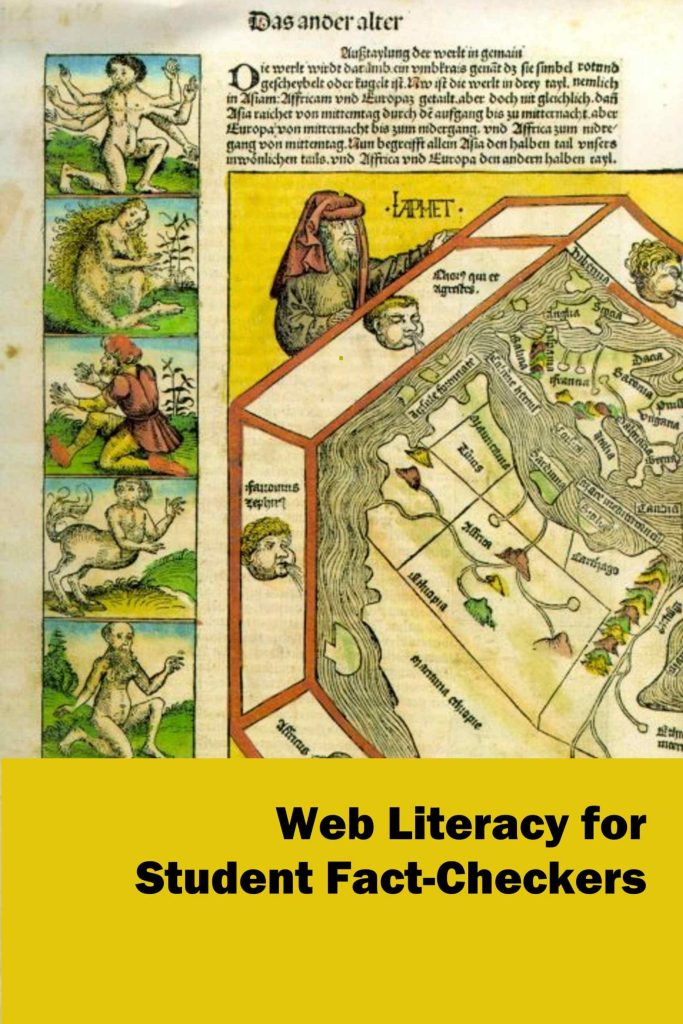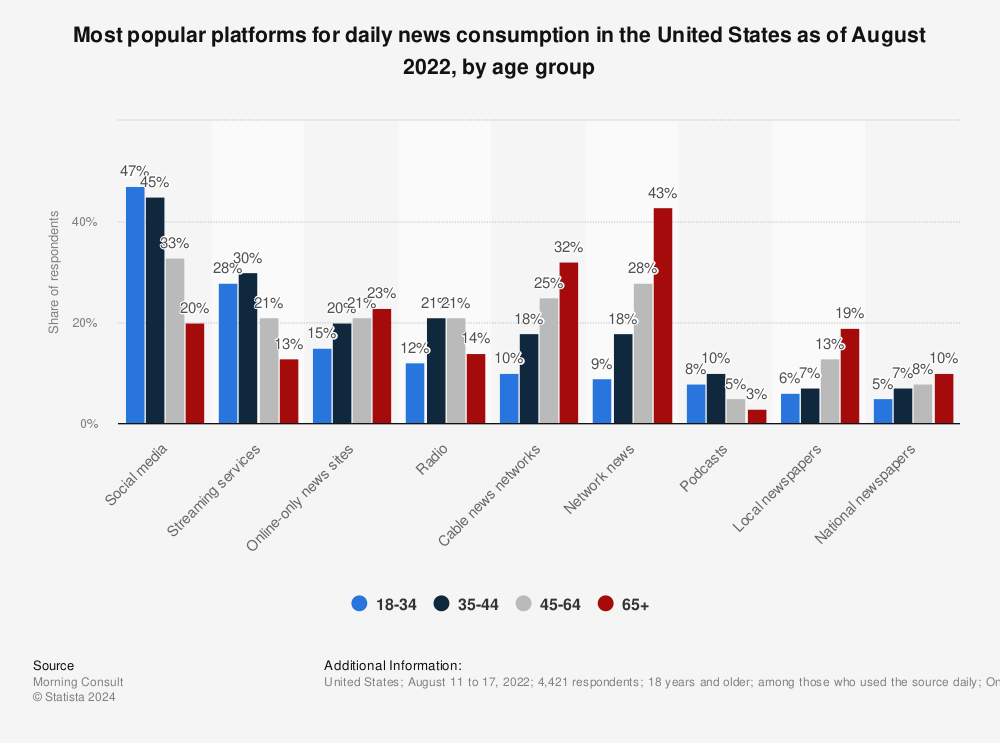What Is Media Literacy?
"The ability to access, analyze, evaluate, create, and act using all forms of communication"
Media literacy empowers you to understand the messages carried by various types of media, how those messages influence people's thoughts and feelings, and how those messages can change when they are taken out of context.
Increasing your media literacy will help you become a more discerning reader, viewer, sharer, and creator of news.
Why Does This Matter?
All responsible citizens need the skills to identify accurate information and real facts. Compare these two graphics and consider how you get your news. Where do journalistic ethics fit into today's media landscape? How can you tell if the news you watch, read, or hear has been verified?

Image by Tobias Rose-Stockwell retrieved from How we broke democracy. Data from Pew Research Center, The modern news consumer.]
Featured Books
Verified: How to Think Straight, Get Duped Less, and Make Better Decisions about What to Believe Online
An indispensable guide for telling fact from fiction on the internet--often in less than 30 seconds.
Asking the Right Questions: A Guide to Critical Thinking
This highly popular text helps students bridge the gap between simply memorizing or blindly accepting information, and the greater challenge of critical analysis and synthesis.

Web Literacy for Student Fact Checkers
Updated in 2021, this is the instruction manual to reading on the modern internet.
News Literacy and Democracy
The book is an essential read for undergraduate students of journalism and news literacy and will be of interest to scholars teaching and studying media literacy, political economy, media sociology, and political psychology.

Verification Handbook: For Disinformation and Media Manipulation (3rd ed.)
This book equips journalists with the knowledge to investigate social media accounts, bots, private messaging apps, information operations, deep fakes, as well as other forms of disinformation and media manipulation.

